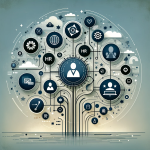In the ever-evolving landscape of Human Resources, performance appraisals have undergone significant transformation. The old guard, with their annual reviews and rigid rating systems, is giving way to more dynamic and individualized approaches. The shift towards modern appraisal systems reflects a deeper understanding of what motivates employees and how they can best contribute to an organization’s success.
Traditional vs. Modern Appraisal Systems
Traditional performance appraisals often came down to a single annual meeting where employees were judged on a year’s worth of work, sometimes by managers who only observed a fraction of that work. This system, not without merit, nonetheless lacked flexibility and immediate relevance. Modern appraisal systems, however, emphasize ongoing communication and real-time feedback. By leveraging technology, these systems provide continuous insights into employee performance, aligning closer with the immediate, fast-paced decision-making processes prevalent in today’s business environments.
Continuous Feedback Mechanisms
The contemporary workplace thrives on agility and continuous improvement, so ongoing feedback mechanisms are gaining traction. Tools and platforms enable managers and peers to provide immediate feedback on projects and tasks. This not only accelerates the employee’s growth but also fosters a culture of transparency and open communication. Companies that have adopted such systems report that this ongoing dialogue enhances employee engagement and satisfaction.
Personalized Performance Metrics
Gone are the days when everyone was measured against the same yardstick. Personalized performance metrics take into account the individual strengths and career aspirations of each employee, tailoring the assessment to their specific role within the company. This personalization acknowledges that a diverse workforce requires a diverse set of criteria to truly measure and encourage performance effectively.
In conclusion, the performance appraisal systems of the future are not only tools for assessment but are also instrumental in shaping the developmental trajectory of employees. With a focus on real-time feedback and personalized metrics, these modern systems are equipped to build a more engaged, motivated, and high-performing workforce.







